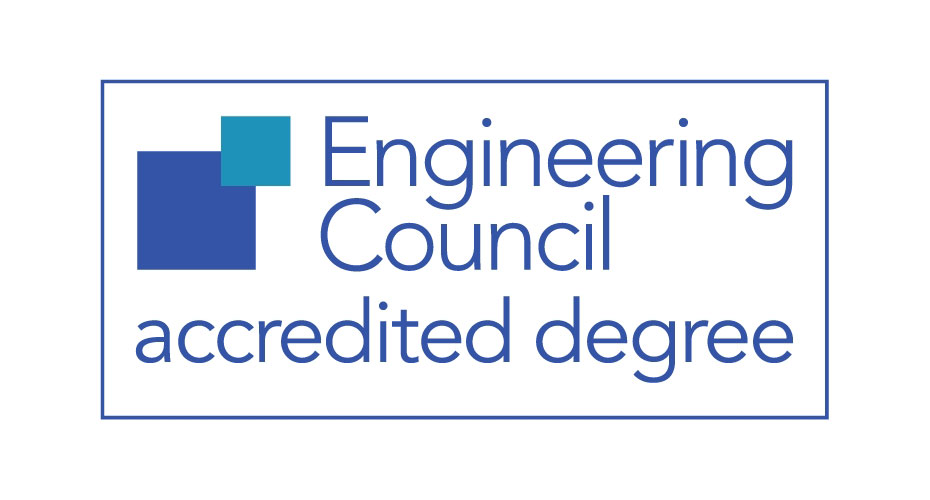| UCAS code | H804 |
|---|---|
| Duration | 4 years |
| Entry year | 2025 |
| Campus | Penryn Campus |
| Discipline | Renewable Energy |
| Contact | Web: Enquire online |
| Typical offer | A-Level: AAA |
|---|---|
|
A-Level: ABB |
| UCAS code | H805 |
|---|---|
| Duration | 4 years |
| Entry year | 2025 |
| Campus | Penryn Campus |
| Discipline | Renewable Energy |
| Contact | Web: Enquire online |
| Typical offer | A-Level: AAA |
|---|---|
|
A-Level: ABB |
Overview
- This course specialises in energy engineering with a focus on clean and renewable energy technologies
- Learn from experts in energy policy, marine renewables, bio-fuels, electrical power and networks, wind, photo-voltaic and thermal technologies
- Our new state-of-the-art Renewable Engineering Energy Facility (REEF) provides dedicated workshop and laboratory space for individual and small group projects
- Cornwall is where the UK’s renewable energy revolution began and is the perfect location for local field trips to specialist renewable energy laboratories, wind farms, solar photovoltaic systems and offshore test sites
- Group projects, small class sizes and a dedicated student society contribute to create a strong sense of community
![]()
Top 10 in the UK for Engineering
10th for General Engineering in The Complete University Guide 2025
![]()
New state-of-the-art Renewable Engineering Energy Facility (REEF) provides dedicated workshop and laboratory space
![]()
Expertise in energy policy, marine renewables, biofuels, electrical power and networks, wind, photo-voltaic and thermal technologies
Accreditations


MEng Renewable Energy Engineering and MEng Renewable Energy Engineering with Industrial Experience
This degree has been accredited by the Energy Institute (EI) under licence from the UK regulator, the Engineering Council.
Accredited by the Energy Institute (EI) on behalf of the Engineering Council for the purposes of fully meeting the academic requirement for registration as an Incorporated Engineer and partly meeting the academic requirement for registration as a Chartered Engineer.
Entry requirements (typical offer)
| Qualification | Typical offer | Required subjects |
|---|---|---|
| A-Level | AAA |
A in Mathematics, Pure Mathematics or Further Mathematics and A in another science* subject
*Accepted A-Level science subjects include: Biology/Human Biology; Chemistry; Computer Science; Design and Technology; Electronics; Environmental Science; Environmental Studies; Geography; Geology; Life and Health Sciences; Physical Education; Physics; Psychology; Science (applied); Statistics. |
| IB | 36/666 | HL 6 in Mathematics (Analysis and approaches or Applications and interpretations) and HL 6 in another science subject |
| BTEC | DDD | Applicants studying one of the following new BTEC Extended Diplomas will be considered without an A-Level science subject. GCE A-Level Maths is still required. Civil Engineering, Engineering, Electrical/Electronic Engineering, Mechanical Engineering, Computer Engineering, Manufacturing Engineering, Aeronautical Engineering. |
| GCSE | C or 4 | English Language |
| Access to HE | 30 L3 credits at Distinction Grade and 15 L3 credits at Merit Grade. | 15 L3 credits at Distinction Grade in an acceptable Mathematics subject area and 15 L3 credits at Distinction Grade in another science subject area. |
| T-Level | Distinction |
The following T-Levels only:
|
| Contextual Offer | A-Level: ABB |
Specific subject requirements must still be achieved where stated above. Find out more about contextual offers. |
| Other accepted qualifications | ||
| English language requirements |
International students need to show they have the required level of English language to study this course. The required test scores for this course fall under Profile B1. Please visit our English language requirements page to view the required test scores and equivalencies from your country. |
|
NB General Studies is not included in any offer.
Grades advertised on each programme webpage are the typical level at which our offers are made and provide information on any specific subjects an applicant will need to have studied in order to be considered for a place on the programme. However, if we receive a large number of applications for the programme we may not be able to make an offer to all those who are predicted to achieve/have achieved grades which are in line with our typical offer. For more information on how applications are assessed and when decisions are released, please see: After you apply
For any questions relating to entry requirements please contact the team via our online form or 01392 724061
I am so excited to have been offered the position of Graduate Engineer with Vestas, as it is essentially my dream job.
I feel like the MEng Renewable Energy course has been crucial to put me ahead of the competition and build my confidence, and so I am grateful the university for making it such a wonderful learning experience. This new role will really allow me to have an impact on the future of wind energy in the UK and internationally and I cannot wait to get started.
Valentine
Graduated Renewable Energy Engineering MEng
Course content
The modules we outline here provide examples of what you can expect to learn on this degree course based on recent academic teaching. The precise modules available to you in future years may vary depending on staff availability and research interests, new topics of study, timetabling and student demand.
Initial focus is on engineering fundamentals including Mathematics, Mechanical, Electrical engineering modules as well as Physics and Thermodynamics. Specific computer skills are covered as well as a broad introduction to Clean Energy Systems and environmental management in preparation for more advanced modules later in the programme.
Compulsory modules
| Code | Module | Credits |
|---|---|---|
| ENE1001 | Renewable Energy Systems 1 | 15 |
| ENE1003 | Science for Energy Engineering | 15 |
| ENE1004 | Applied Computing for Energy Studies | 15 |
| ENE1005 | Energy Policy, Markets and Law | 15 |
| ENE1006 | Mathematics for Energy Systems | 15 |
| ENE1007 | Engineering Mechanics | 15 |
| ENE1008 | Thermodynamics and Fluid Mechanics | 15 |
| ENE1009 | Electrical and Electronic Principles | 15 |
Core engineering modules continue the development of the key disciplines with further development of essential computational skills and additional modules on Clean Energy Systems. A field trip and related group project studies renewable energy resource assessment as well as developing report writing and team working skills.
In the summer vacation between your second and third year, you may carry out a minimum six-week industrial placement. The onus is on you to select the area in which you wish to work and to find a placement, although the University can help by providing contact details and suggesting companies which suit your interests. Companies with close ties to the department also provide placements for a number of students.
Compulsory modules
| Code | Module | Credits |
|---|---|---|
| ENE2001 | Energy Management | 15 |
| ENE2003 | Electrical Energy Conversion and Transport | 15 |
| ENE2004 | Renewable Energy Systems 2 | 15 |
| ENE2005 | Mechanics of Materials | 15 |
| ENE2006 | Applied Thermodynamics | 15 |
| ENE2007 | Fluids Mechanics | 15 |
| ENE2008 | Project Management and Accounting | 15 |
| ECM2906 | Data, Signals and Systems | 15 |
An undergraduate dissertation forms an important element of the work in this year, allowing students to explore areas of particular interest and develop research, analytical and writing skills. Optional modules include specific clean or renewable energy technologies such as Solar Energy, Wind Energy, Marine Renewables, Renewable Heat Technologies and Energy storage. Modules can also be selected from a range of environmental impact, energy policy, ethics and life cycle analysis subjects.
Compulsory modules
| Code | Module | Credits |
|---|---|---|
| ENE3001 | Third Year Field Course (Group Project) | 15 |
| ENE3002 | Network Engineering, Modelling and Management | 15 |
| ENE3011 | Renewable Energy Dissertation | 30 |
Optional modules
| Code | Module | Credits |
|---|---|---|
| Select 60 credits: | ||
| ENE3003 | Marine Renewable Energy | 15 |
| ENE3004 | Life Cycle Analysis | 15 |
| ENE3005 | Wind Energy | 15 |
| ENE3007 | Energy Storage Technology | 15 |
| ENE3008 | Work Placement Report | 15 |
| ENE3009 | Solar Power | 15 |
| ENE3010 | Sustainable Architecture | 15 |
If you choose the 'with Industrial Experience' variant of this degree this includes an extra industrial placement between your third and fourth year, followed by a research project based on your placement experience. For more Information about the ‘with Year in Industry’ programme, please see the course variants.
The final year of study for MEng students offers a wide range of advanced specialist modules including a group project. This is an opportunity to further develop team working and research skills. Alongside these activities there are optional modules on the advanced engineering aspects of Wind Energy, Marine Renewables, Solar Energy Research, in addition to further study of Electronic and Electrical Engineering.
Compulsory modules
| Code | Module | Credits |
|---|---|---|
| ENEM006 | Professional Ethics, Competence and Commercial Awareness | 15 |
| ENEM010 | Group Design Project | 20 |
Optional modules
| Code | Module | Credits |
|---|---|---|
| Select 40 credits: | ||
| ENEM007 | Industry Placement Project | 40 |
| ENEM005 | Research Project | 40 |
| Select 45 credits: | ||
| ENEM008 | Control Engineering for Renewable Energy | 15 |
| ENEM009 | Advanced Marine Renewable Energy | 15 |
| ENEM011 | Advanced Wind Energy | 15 |
| ENEM012 | Solar Energy Research and Innovation | 15 |
| ENEM105 | Low Carbon Vehicles and Transport | 15 |
| CSMM408 | Themes in Climate Change | 15 |
Course variants
UCAS code: H805
The MEng Renewable Energy Engineering with Industrial Experience programme includes an industrial placement prior to the start of your third year, followed by a research project based on your placement experience.
Your placement will be spent working in an appropriate business or industry related to energy engineering, and you will benefit from our established connections with local, national and multinational organisations. We find that our students gain valuable experience from working in industry. As well as increasing their first-hand knowledge, they also improve personal and transferable skills, make new contacts and enhance their employability.
Fees
Tuition fees for 2024 entry
UK students: £9,250 per year
International students: £29,700 per year
Scholarships
The University of Exeter has many different scholarships available to support your education, including £5 million in scholarships for international students, such as our Global Excellence Scholarships*. Financial support is also available for students from disadvantaged backgrounds, lower income households and other under-represented groups to help them access, succeed and progress through higher education.
* Terms and conditions apply. See online for details.
Learning and teaching
Our new state of the art Renewable Engineering Energy Facility (REEF) is equipped for the study of a number of renewable energy technologies, both practically and with industry-standard software. A variety of devices producing renewable energy exist around the campus, the latest being a 50kW solar PV installation on top of our engineering building, to go with a solar powered Performance Centre. The development of our Environment and Sustainability Institute at the Penryn Campus has seen a significant further expansion of installed renewable energy capacity on campus, representing the continuing commitment of the University to sustainability in our operations, teaching and research.
Fieldwork
Throughout the programmes you will experience a range of renewable energy technologies, including trips to renewable energy facilities such as Goonhilly wind farm, local solar PV farms and other relevant installations. You may also attend events like public planning meetings or energy use assessments of public or private buildings as opportunities become available.
In the second year, the residential field trip will entail a field-based renewable energy technical resource assessment exercise. Working as a project team, you will focus on the use of appropriate renewable energy technologies to deliver a professional report to local stakeholders.
Industrial Placement
In the summer vacation between your second and third year, you may carry out a minimum six-week industrial placement. The onus is on you to select the area in which you wish to work and to find a placement, although the University can help by providing contact details and suggesting companies which suit your interests. Companies with close ties to the department also provide placements for a number of students.
If you study the MEng programme, you’ll carry out a further industrial placement between your third and fourth year.
Assessment
Assessment methods vary between modules, but usually combine exams and coursework. This might include practical laboratory work, professional posters, group exercises, reports, essays or verbal presentations.
Module choice
Option modules can extend beyond your main subject area if you are studying a Single Honours degree: dependent on timetable constraints, pre-requisites and programme structure, it may be possible to study option modules outside your subject area.
Optional modules outside of this course
Each year, if you have optional modules available, you can take up to 30 credits in a subject outside of your course. This can increase your employability and widen your intellectual horizons.
Proficiency in a second subject
If you complete 60 credits of modules in one of the subjects below, you may have the words 'with proficiency in [e.g. Social Data Science]' added to your degree title when you graduate.
- A Foreign Language
- Data Science
- Entrepreneurship
- Innovation
- Law
- Leadership
- Social Data Science
Your future

This degree programme has been designed to include the knowledge and skills that potential employers in the energy sector have told us they require. A very high proportion of our graduates find employment in the renewable energy sector or study for a higher degree in the field.
The UK’s commitment to expansion of renewable energy is likely to mean a high level of investment in the sector in the next decade. The adoption of the UK’s microgeneration tariff in 2010, the phased adoption of the Renewable Heat Incentive from 2011-2014 and introduction of Contracts for Difference from 2014, suggests continued strong support for rapid expansion of renewable energy in the UK. All EU countries are making similar investments and the US, India, China and many other nations are also investing heavily in the renewable generation. This will create broad opportunities for those seeking to work in the sector, both nationally and internationally. The global renewables sector has seen investment in excess of $289bn in 2017 and that investment has been over $200bn every year since 2010. A total of 10.3 million people now work in renewables around the world.
Our Renewable Energy programmes will shape you into a multi-talented individual, who is able to succeed in a wide variety of professional roles.
Career paths
The broad-based skills acquired during your degree will give you an excellent grounding for a wide variety of careers, not only those related to Renewable Energy but also in wider fields. Examples of roles recent graduates are now working as include:
- Climate Change Consultant
- Design Engineer
- Electrical Engineer
- Energy Analyst
- Energy and Sustainability Engineer
- Environmental Planner
- Environmental Scientist
- Marine Design Engineer
- Offshore Wind Research Engineer
- Renewable Technology Designer











